By Titus Nyarko Nde (Boise State University, PhD in Computing Program)
Introduction
I had the opportunity to attend the International High Performance Computing Summer School 2024 in Kobe, Japan (hereafter IHPCSS). Thanks to Elizabeth Leake (STEM-Trek) for encouraging me to apply. It was the first time I had applied for the school, and I was thrilled to be selected. The IHPCSS exceeded all of my expectations. Some of the relationships I made in Kobe will last a lifetime. I am not sure where to begin; relax, sit down, and grab some coffee as I walk you through my journey.
Sponsorship
IHPCSS was fully sponsored for travel, lodging, meals, etc. Many thanks to the National Science Foundation ACCESS program for supporting U.S. participants.
Preparation
How did I prepare? Though I know a couple of programming languages, I am predominantly a Python and R programmer, and all of my HPC work, to date, has been in Python. However, for the IHPCSS, I had to revisit the C programming language and learn MPI and OpenMP. I know MPI and OpenMP, but I only use them in Python. Thanks to my friend, Dr. Brian Kyanjo, for helping me prepare. I also took a crash course on supercomputing organized by the National Energy Research Scientific Computing Center (NERSC) on June 28, 2024. This is not because I lack HPC experience – it was a calculated attempt to ensure that I was not lost at summer school and to review concepts that I had learned in the past but never made use of. I also wanted to bring to life my knowledge of the C programming language since I do not do any active programming in C right now. I aimed to get the best out of each session. This preparation was helpful and contributed immensely to the experience.
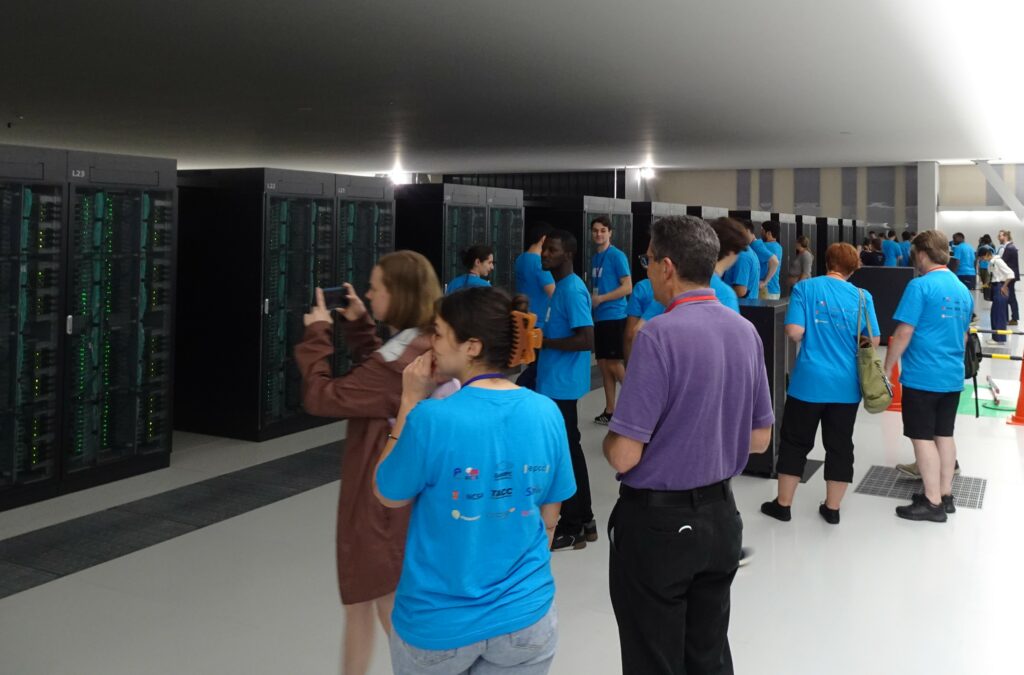
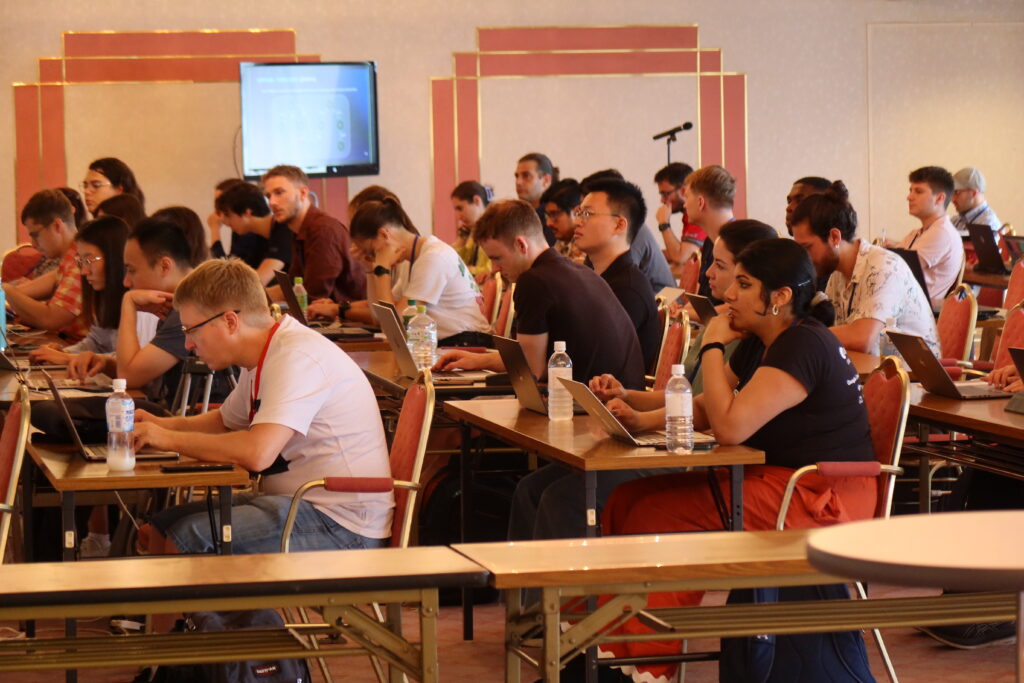
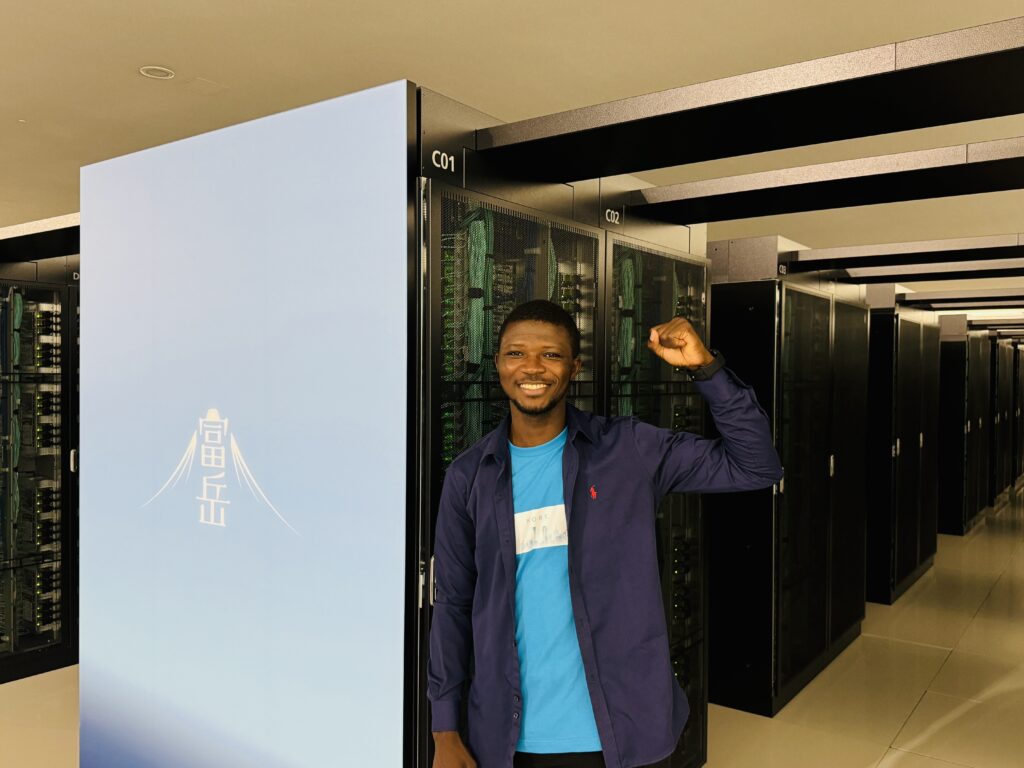
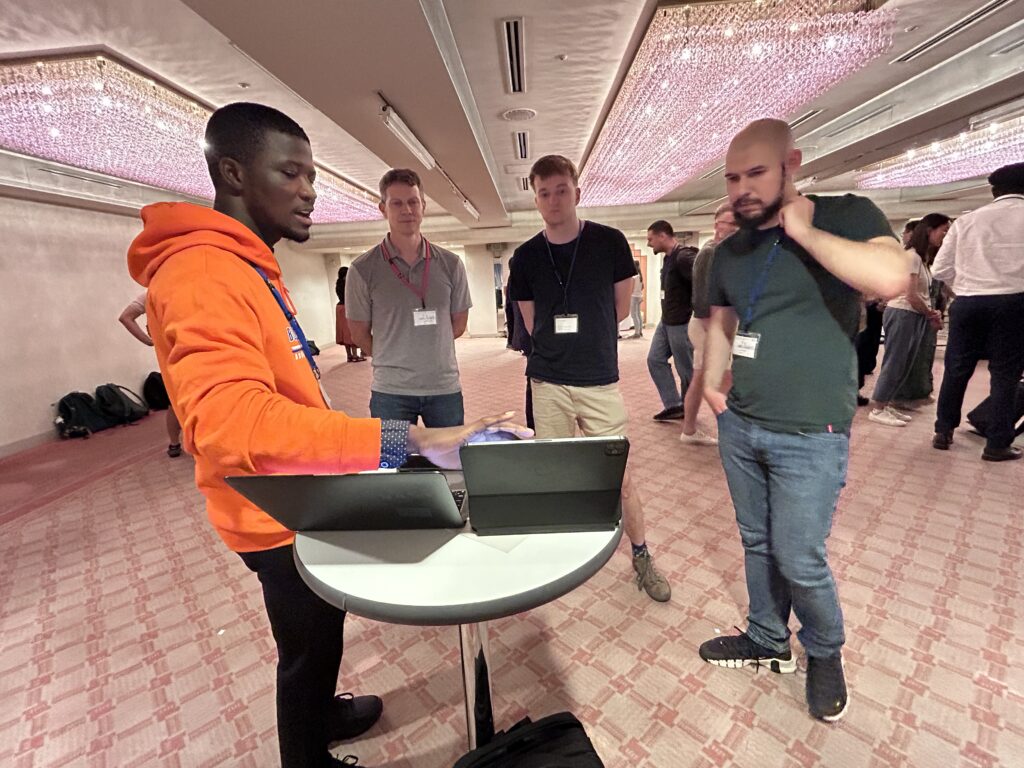
Highlights of the IHPCSS (My favorite parts)
I wish I could tell you every detail of how I spent every minute during the IHPCSS in Japan, but that might require a book! Here are the more interesting bits:
- Participants: The IHPCSS brought together more than 100 HPC enthusiasts from around the world. Participants have varied backgrounds and are involved in interesting and innovative research. I most enjoyed talking to those who conduct remote sensing and cosmology-related research because these are areas in which I am currently actively engaged. Notable among them are Samantha Wittke (CSC – IT Center for Science, Finland), Andrea Miola (University of Ferrara, Italy), Bareera Mirza (Oregon State University, US), Richa Prajapati (IITB – Monash Research Academy, Australia), and Tenri Jinno (Kobe University, Japan).
- Poster session: Each student showcased their research via lightning talks and poster presentations. This awesome session gave students the opportunity to interact and explain their research to others from different fields, which educated the audience. During the poster session, each student-presenter answered interesting questions from their colleagues. It was a very educational session.
- Resource fair: Here, students learned various soft skills from experienced mentors. Topics included networking skills, interview tips, presentation skills, resume review, work-life balance, microaggression, getting the best out of a conference, dealing with difficult people, and how to write a fantastic thesis. Students had the chance to interact with mentors and ask them a wide range of questions; It was a great experience.
- One-on-one mentoring session: In this session, each student met his/her assigned mentor to discuss topics of interest. Students were encouraged to discuss specific challenges or if they needed help in certain areas, such as choosing a career path. My discussion with my mentor, Maciej Cytowski (Pawsey Supercomputing Research Centre, Australia), was invaluable and will stick with me forever. I can only speak of my experience with my mentor, but based on my interactions with other students, it seemed that others had a similar experience.
- Hands-on session: Most tutorial sessions featured hands-on sessions, where we applied skills that we had just learned. This helped with retention by reinforcing a greater understanding of what was being taught in real-time.
- Lightning talks from returning mentors: Some mentors had attended the IHPCSS in the past as students. Each returning mentor gave a lightning talk about their journey in life, from academics to careers. Some transitioned into industry, and others remained in academia. They also talked about how the IHPCSS impacted their lives. This session was very educative and inspiring.
- Fugaku tour: We had the honor of visiting Fugaku, which was once the most powerful supercomputer in the world – currently the fourth, according to the Top500 ranking. It is still the most powerful supercomputer in the Asia-Pacific region. This is definitely a place that any HPC enthusiast would love to visit. It was interesting to learn more about Fugaku and the innovative research it enables.
- Social event: After learning so much, it was time to relax. We had fun enjoying good Japanese food and drinks and taking beautiful pictures. Some of my best pictures were taken on this day, which will be among my cherished memories of the IHPCSS. The event was in the mountains, surrounded by beautiful scenery. From there, we had a beautiful view of Kobe City.
Note that this list is not exhaustive. There are several other interesting bits to write about, such as the programming challenge. The best way to get the most out of the IHPCSS is to experience it yourself, so I will encourage all eligible persons to apply in the future if they have yet to participate. Each year, the summer school is held in the US, Europe, or Japan, so watch for the call for participation, which is usually announced in the fall for the following summer.
Exploring Japan
The program allowed ample time to explore the city of Kobe and nearby regions of Japan on our own. I visited many interesting places: Hiroshima Castle, Osaka Castle, Downtown Osaka, Kobe Port Tower, Ikuta-jinja shrine, Chinatown in Kobe, and the Hiroshima Peace Memorial Park, where the Hiroshima Peace Memorial Museum is located. Also, my island port of entry, Kansai International Airport, is a wonder. Please check it out.
I tried different types of Japanese cuisine, such as the Hiroshima-style Okonomiyaki, Sushi, and street foods. I wish I could have remained in Japan for a few more days after the IHPCSS, as some colleagues did. I hope to return for a visit while on vacation in the future.
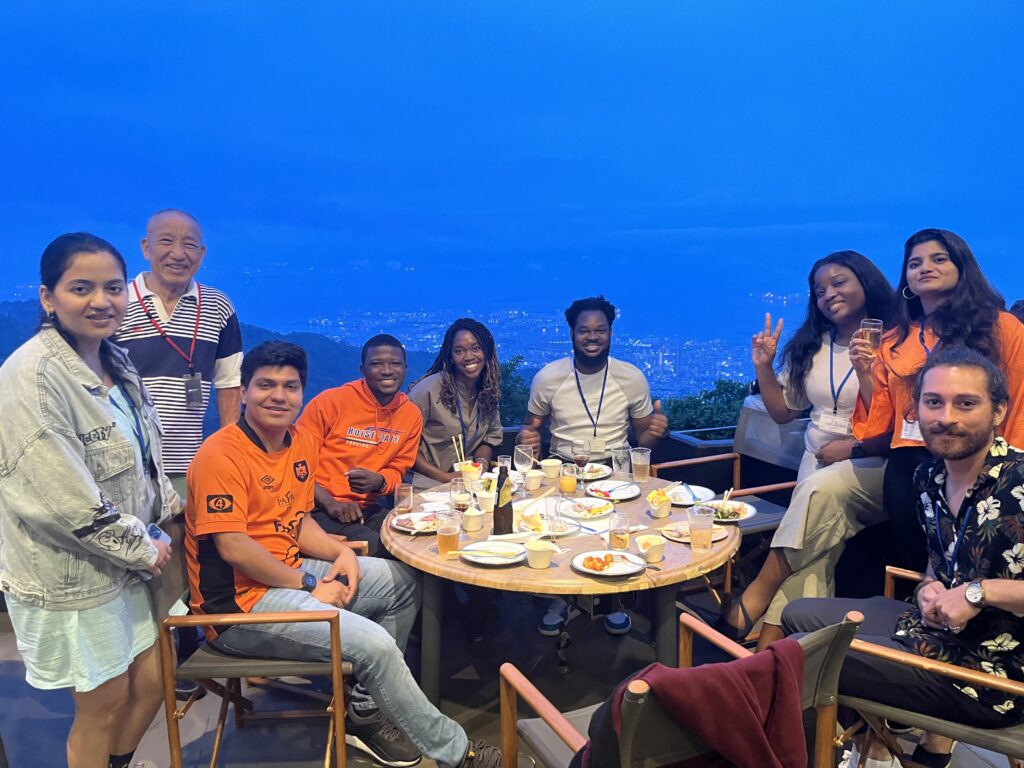
What next?
I’m energized and enthusiastic about HPC right now, and look forward to exploring the research, career, and innovation opportunities it enables. I am also looking forward to learning CUDA and plan to take a CUDA crash course at NERSC. In the future, I hope to return to the IHPCSS as a mentor, which will be a way to give back to the program. With this in mind, I am telling the school organizers that I will return! Yes, I will be back! To all students who participated in the IHPCSS, I say, “See you at the Topmost Top!”
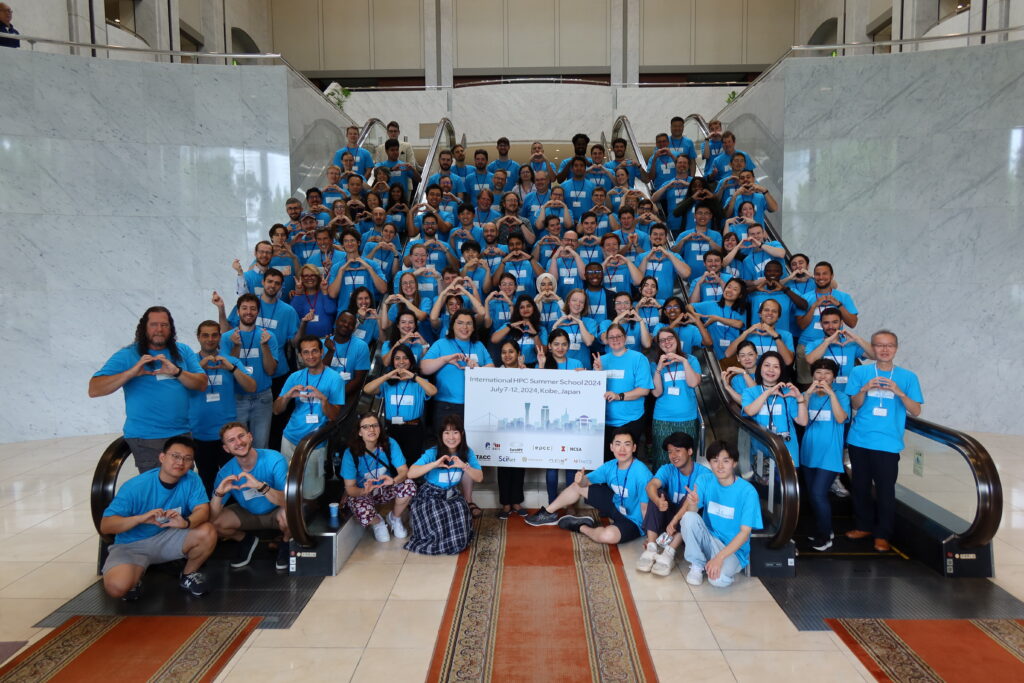


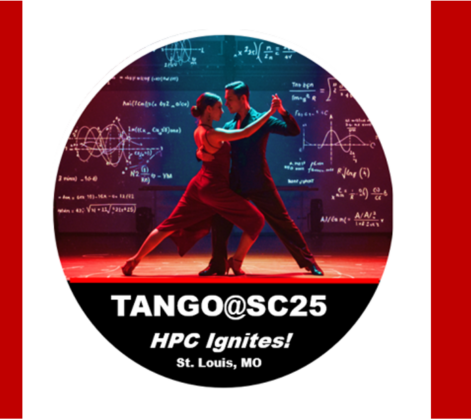
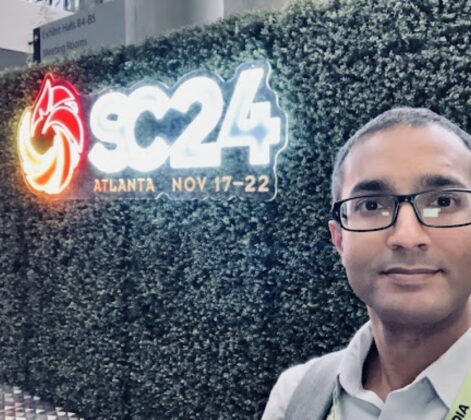

Hi Titus, this is a very informative and great blog. Your detailed recounting of the highlights paints a vivid picture of the event’s depth and breadth. It’s clear that the program offers a unique combination of hands-on learning, networking opportunities, and cultural experiences that make it a standout event for HPC enthusiasts.
I’m curious about a couple of aspects:
Given the competitive nature of the IHPCSS, what strategies or specific steps would you recommend for someone aiming to increase their chances of being selected in future applications?
How did the insights and connections you gained during the IHPCSS influence your current research or career trajectory? Are there any specific projects or collaborations that have emerged as a result of your participation?
Thank you so much. Once again, I love how you prepared for the entire event and all the highlights you have given are very helpful.
Titus, this is a good experience!